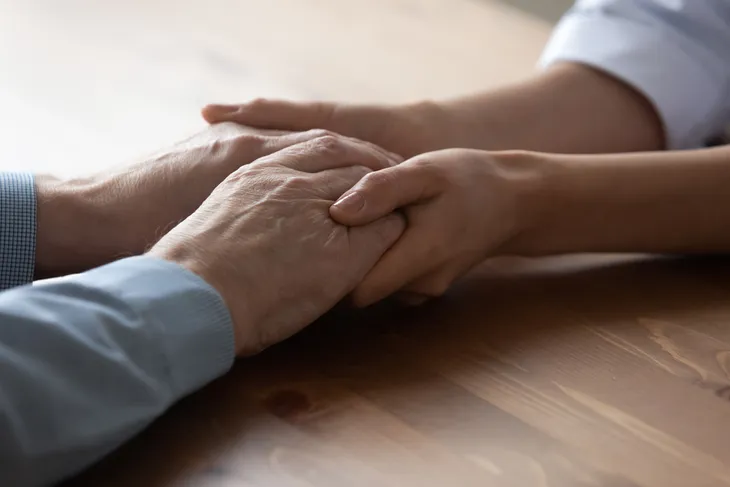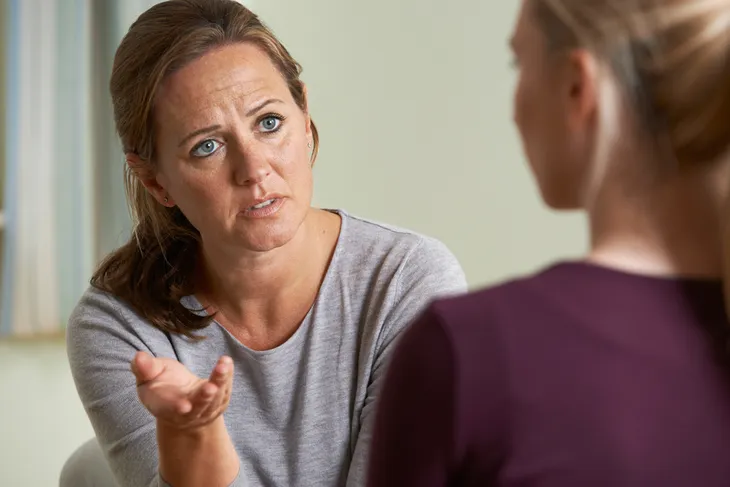- Empaths not only sense but also take on other people’s emotions.
- They are often described as good listeners, intuitive, and empathetic.
- However, their heightened sensitivity can be overwhelming and draining.
Would you describe yourself as a sensitive person? Do people open up and tell you their problems? Are crowds overwhelming? If so, then you might be an empath.
While empath has become a buzzword of sorts, you might not know how to tell if you are one. Let’s explore how it differs from empathy, common traits of empaths, benefits, challenges, and whether you can become one.
What Is an Empath?
An empath is an emotional sponge. That means they soak up the emotions — both positive and negative — of those around them. Beyond simply understanding someone else’s emotions, The Healthy says empaths take on the other person’s emotions as their own.
According to the source, studies show that 1- to 2-percent of people are true empaths. However, the source also says that 10- to 15-percent of the population are “highly sensitive.” So, empathy exists on a spectrum.

Empath vs. Empathetic
Since empathy exists on a spectrum, not everyone who is empathetic is an empath. The New York Times states that empathy is “understanding how others feel and being compassionate toward them.” But empaths take it a step further and feel the other person’s emotions themself.
“So, when an empath is confronted with a distressed person, sad situation or even just a really upsetting movie,” HowStuffWorks says, “it tends to affect her to a much greater degree than someone who isn’t one.” As a result, empaths may struggle to differentiate between their feelings and other people’s feelings.

Signs You Might Be an Empath
So, how do you know if you’re an empath? There isn’t an established criteria. In fact, The Healthy says, “the label is more pop-culture than clinical.” Since the term can mean different things to different people, definitively defining what makes someone an empath is complicated.
Verywell Mind agrees that answering the question is subjective. In other words, the source says it may “come down to whether or not you believe yourself to be one.” That said, certain traits are commonly associated with empaths. With this in mind, here are six signs you might be an empath.

People Tell You Their Problems
You could be an empath if you’re frequently told you’re a good listener. That’s because it’s a sign that those around you get the sense that you genuinely listen when they tell you their problems and feel comforted by the interaction.
According to The Healthy, “People naturally seek out empaths when looking for an emotional connection and will often say they don’t know why but they’re able to open up to them in ways they can’t with others.”

You Have Good Intuition
If you have strong gut reactions, then you might be an empath. Perhaps you can tell when people are lying or holding back. For example, The Healthy says you might quickly spot a scammer or know that your best friend is pregnant before they tell you.
As Healthline puts it, “Empaths tend to be able to pick up on subtle cues that provide insight on the thoughts of others.” This ability can help empaths make decisions about people and situations quickly.

Crowds Are Overwhelming
Since empaths are emotional sponges, crowds can be too much for them. As mentioned, empaths absorb the positive and negative emotions of those in the world around them. “In crowded or busy places,” Healthline says, “this sensitivity may seem magnified to the point of being almost unbearable.”
Understandably, those who easily pick up on the “emotional noise” from a crowd may find it overwhelming to be around too many people. So, you could be an empath if you think crowds are overwhelming and emotionally draining.

Alone Time Is Appealing
Consequently, an empath may need alone time to recharge. Being highly tuned to other people’s emotions and taking on their stress or pain can be emotionally and physically exhausting. Healthline says “even an overload of positive feelings” can be exhausting.
While empaths commonly need alone time to recover, that doesn’t necessarily mean they’re introverts. For instance, you might love being around other people “until you reach that point of overwhelm,” as the source puts it.

You Want To Help People
Even though their heightened sensitivity can lead empaths to self-isolate, they do want to reach out and help others. The Healthy says, empaths “see being empathic as a core part of their personality and crave being needed in that way,” to put it another way.
As a result, the source says empaths may be attracted to “helping” professions that tap into their big hearts. Examples of “helping” professions include social workers, therapists, teachers, and nurses.

Nature Is Comforting
You could be an empath if spending time in nature replenishes you. Healthline says that empaths may be drawn to nature more than others “since natural environments provide a calming space to rest from overwhelming sensations, sounds, and emotions.”
For instance, hiking through the woods or watching the ocean may help you release your burdens and recharge. Escaping into nature can help empaths separate themselves from the outside world and focus on their own emotional needs.

Benefits of Being an Empath
Being an empath is a good thing for several reasons. For example, empaths can:
- Read other people’s emotions
- Identify when someone needs help
- Provide emotional support
- Tell when someone is dishonest
- Feel other people’s joy deeply
These traits can help you both personally and professionally. For instance, they can help you strengthen your relationships with others and become someone others trust greatly. And your ability to read people can help you protect yourself and your loved ones from manipulators.

Challenges of Being an Empath
On the other hand, being an empath has its challenges. For example, empaths can:
- Experience emotional fatigue and burnout
- Struggle with setting boundaries
- Find it hard to make time for themselves
- Be taken advantage of by energy vampires
- Feel weighed down by the weight of the world
Since empaths feel the emotions of those around them so profoundly, it can emotionally take a toll. And their capacity for compassion and aversion to setting boundaries can make empaths especially susceptible to energy vampires.
According to NBC News, energy vampires “feed on” anyone who will listen. As a result, empaths may want to watch out for drama queens, those who blame others for all their problems, and chronic talkers.

Can You Become an Empath?
The jury is still out as to whether you can choose to become an empath, according to The Healthy. However, the source says, “it is certainly possible to teach yourself skills for greater empathy.” For instance, it can help to expose yourself to other people’s experiences and perspectives.
You can do so in a variety of ways, from volunteering to help people with different life experiences than yourself and reading about people who face adversity in ways you don’t. Additionally, you can develop greater empathy by checking in with loved ones and actively listening when they talk about their feelings.
